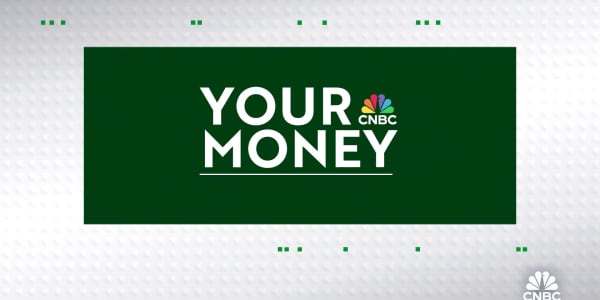Each year, the IRS releases a list of the "dirty dozen" tax scams to watch out for.
These common scams tend to increase around tax time as individuals work to get their tax returns in by April 17, which this year is two days later than usual.
Here are some of the top scams to watch out for — or avoid engaging in yourself — now.
Phishing schemes
If an email or website asks for your personal information, be wary. One particular scam to watch out for this year uses your own bank account.
The scam works by having criminals deposit funds into your account, who then contact you to try and recoup the sum. They often identify themselves as the IRS or a collection agency. In reality, they're imposters who are after your bank account information.
Do not give out your personal information. Also note that the IRS never contacts taxpayers by email for their personal information.
Identity theft
Con artists could pose as you — and steal your individual taxpayer identification number or Social Security number — to try to get access to your tax refund.
The number of taxpayers who have become identity theft victims fell 40 percent in 2017 from the year before, according to the IRS.
But that means criminals are coming up with more creative ways to get your information.
Avoid becoming a victim by using computer software that has anti-virus and firewall protections. Do not give out your personal information via email, phone or text.
Phone scams
If someone calls threatening to arrest you, deport you or revoke your license over a tax bill, don't believe it.
Fraudsters typically call unsuspecting individuals and claim to represent the IRS. And they have been known to prompt unsuspecting victims to pay bogus tax bills via wire transfers or prepaid debit or gift cards.
The IRS will never call you to demand specific payments. If you receive such a call, it is best to hang up and report the call to the IRS at 800-829-1040.
False income
Some taxpayers may be tempted to claim they make more money than they do to reap benefits such as refundable tax credits.
Others may create fake 1099-MISC forms, which show non-employee compensation, to adjust their income or gain access to money in accounts that are "hidden away."
If you're caught, you will have to pay up for inaccurate refunds, including interest and penalties. If it's your tax preparer who encouraged such fraud, you will still have to take responsibility for what's on your tax return.
Fake charities
Watch out for illegitimate charities that try to get you to give them money.
Fake charities don't qualify for a tax deduction, not to mention your money probably won't go to the cause you think it will.
Verify that a charity is authentic before you hand over your money. The IRS recommends that you check the name of the charity carefully, as some fake charities will use names that are similar to legitimate charities.
When donating funds, use a check or credit card so that you can document the transaction. Never give cash.
As with other scams, don't give out personal information such as your Social Security number or other passwords.
Inflated refunds
Beware of scam artists who masquerade as tax professionals and promise large federal tax refunds.
They may encourage you to claim benefits, rebates or tax credits that are not accurate.
Fraudsters may even file a false tax return using your name and pocket the refund.
These individuals may try to gain your trust through presentations at religious groups and community events. They may use phony storefronts, advertisements and flyers to promote their services.
In addition to doing a background check on any tax preparer, be sure to carefully read your tax return before you sign it.
Tax preparer fraud
Dishonest tax preparers tend to surface around tax time.
Working with such so-called professionals can lead to refund fraud and identity theft, not to mention get you in hot water with the IRS.
Avoid becoming a victim by doing some research on any professional with whom you work.
Every tax preparer should have a Preparer Tax Identification Number with the IRS. In addition, their registration with the agency will show whether they have appropriate qualifications, including whether they are an enrolled agent, certified public accountant or attorney.
Inaccurate tax disputes
While you can dispute your tax bill in court or through an administrative appeal with the IRS, you cannot get out of your obligations to pay them.
Yet that doesn't stop individuals from trying to make "unreasonable and outlandish" claims, according to the IRS. Common excuses include citing religious or moral reasons to get out of paying taxes, arguing that only federal government employees should pay federal income tax or asserting that only income from foreign sources is taxable.
"Time and time again, these arguments have been thrown out of court," the IRS said in a warning.
Plus, you could face criminal prosecution and/or civil penalties if you are involved in such scams.
Padding deductions
In the pursuit of a larger refund or a lower tax bill, some taxpayers may inflate their deductions or try to get credits they really are not eligible for.
That can include exaggerating charitable donations or business expenses or claiming the earned income tax or child tax credits.
Including erroneous information on your return will likely trigger an audit, steep financial penalties and even criminal prosecution.
Offshore accounts
It may be tempting to let overseas accounts go unreported to the IRS, but the agency is on the lookout for these accounts.
Since 2009, the agency has collected $11.1 billion through the Offshore Voluntary Disclosure Program, which lets taxpayers who have been hiding funds come clean. The agency has received more than 56,400 disclosures.
Of course, it is easier not to hide the money in the first place. If you do, you could face penalties and criminal prosecution.
Abusive tax shelters
Some schemes aim to help individuals evade their tax responsibilities by hiding assets through financial instruments such as trusts or captive insurance.
The IRS urges individuals to be wary of false promises to reduce or eliminate your tax liabilities, particularly when it comes to financial instruments that are unnecessarily complex or have forms that don't match their stated purpose.
The schemes may involve insuring implausible risks or duplicating commercial coverage.
Like other scams, these frauds tend to become more common around tax time, and individual taxpayers will face financial consequences for using them.
False business credits
Crooked tax return preparers may take advantage of legitimate credits by applying them in situations where they are not applicable.
That goes for two credits, in particular: the research credit and the fuel tax credit, according to the IRS.
The research credit is aimed at encouraging individuals to invest in research. But some tax filers stretch the credit to apply to unqualified research or research expenses.
The fuel tax credit was created for off-highway and farming uses. Most taxpayers are not eligible to use it, yet it still shows up erroneously on some returns.
Misusing both credits will result in penalties.
Take note: If your tax preparer makes the improper claim, you, the taxpayer, are still on the hook to pay the consequences.






